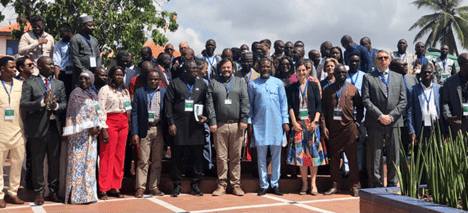The establishment of a regional digital surveillance system that harnesses the power of data to predict and prevent disease outbreaks is possible, Director General-West African Health Organisation, Dr. Melchior Aissi, has said.
By building a responsive and resilient network of information, Dr. Aissi believes that it will be possible to leverage data to anticipate and mitigate health crises; ultimately improving public health outcomes across the West African region.
“We have the chance to build a regional surveillance system that is not only responsive but also resilient, one that leverages the power of data to predict and prevent outbreaks before they occur. We can create a network of information that empowers our respective countries and informs policy decisions at the highest levels,” he said
He said this in a speech read on his behalf at a technical workshop on ‘Enhancing digital surveillance in the ECOWAS Region’ in Accra. He stated that the path to a robust digital surveillance system comes with challenges, but it is important to navigate the difficulties of integrating diverse health information systems.
In addition, he mentioned that it is also imperative to ensure the interoperability of digital platforms and build the health workforce’s capacity to utilise these tools effectively.
The workshop was organised by ECOWAS-Regional Centre for Surveillance and Disease Control in collaboration with the Regional Programme Support to Pandemic Prevention in the ECOWAS Region, with the support of GIZ/RPPP2.
The three-day event sought to help the West African Health Organisation through Regional Centre for Surveillance and Disease Control (WAHO/RCSDC) consider the use of appropriate and available digital technologies that can improve the regional approach to surveillance and the full implementation of RCSDC’s mandate.
Also, the Minister of Health, Kwaku Agyeman-Manu, in a speech read on his behalf expressed confidence that the region’s commitment to finding appropriate available digital technologies will have ripple-effects on member-countries and enhance their ability to respond to diseases such as Ebola, Lassa fever and COVID-19.
Speaking on partnerships, he said: “Every partnership we forge will strengthen the bonds between our nations and our people. Every policy we craft will bring us closer to a future where public health emergencies are no longer a threat to regional stability and economic growth”.
Team Leader-Macro-Economic and Trade Section, Delegation of the European Union to Ghana, Timothy Dolan, said the digitisation of health surveys as part of the integrated disease surveillance and response strategy is seen as a necessity in the fast-evolving global health landscape.
The use of digital tools has been crucial in advancing public health surveillance capabilities and promoting swift, efficient data-sharing across the region, he added.
Overall, establishing the CSDC and support from the European Union, according to Mr. Dolan, represent important steps toward building resilient health systems and innovative approaches to public health surveillance and responses in the ECOWAS region.
These efforts are seen as crucial aspects of emergency preparedness and response, especially in an era when global interconnection has brought forth unprecedented public health challenges.










